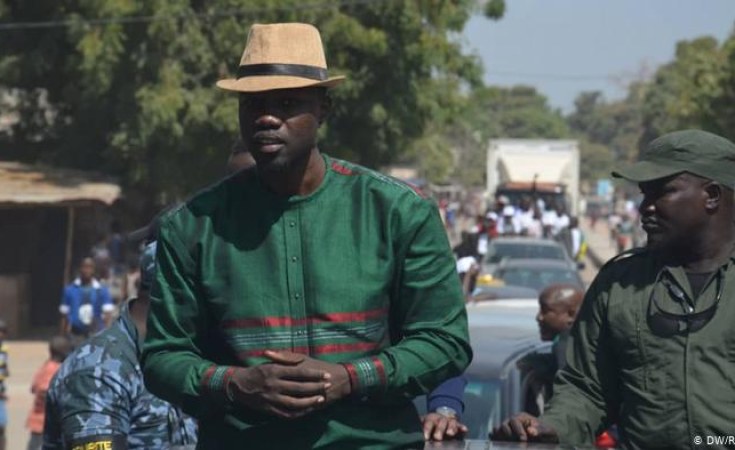A court in Senegalese opposition leader Ousmane Sonko's stronghold of Ziguinchor has ordered his reinstatement to electoral lists. The decision paves the way for Sonko to be a presidential candidate.
The judge of the administrative court cancelled Sonko's removal from the electoral lists on Thursday evening. It also ordered his reinstatement.
It is a first victory for Sonko in his legal battle against the state.
The politician remains under arrest in hospital in Dakar following a 45-day hunger strike that ended early in September for health reasons.
Sonko began the hunger strike on 30 July to protest at what he describes as political oppression by the government in Senegal.
He was hospitalised on 6 August and admitted to an intensive care unit. He remains under arrest, his party spokesmen told RFI.
Marathon hearing
Sonko is the mayor of Ziguinchor, the capital of the Casamance region in the south of the country.
Eight lawyers took the stand to explain why the removal of their client from the electoral lists was illegitimate.
They argued that Sonko was tried in absentia and then arrested. They told the court that this arrest required a new trial.
The original conviction should be overturned, the court heard, and Sonko's civil rights restored.
It took a hearing of nearly 12 hours to reach this decision, according to RFI's correspondent in Senegal.
The marathon session was punctuated by several incidents including a late-night attempt by state prosecutors to challenge the judge of the administrative court on the grounds that he has family ties with the city's deputy mayor.
Judge Sabassy Faye rejected the argument and continued the hearing.
After listening to all parties, he was forced to read his decision under a flashlight, after a sudden power cut.
He concluded that Sonko should not have been removed from the electoral list and should be re-registered.
Major step forward for the opposition
Despite his judiciary troubles, Sonko has remained the leader of the Pastef party and the country's most popular opponent to President Macky Sall.
Sonko was accused of sexual misconduct and morally corrupting a young woman in the spring, and arrested multiple times, which sparked violent clashes between supporters and the police.
He has faced a number of legal problems, which he says are aimed at keeping him out of politics.
On 1 June, Sonko was sentenced in absentia to two years in prison, which the government claimed makes him ineligible to stand in next year's presidential elections.
The government also ordered the dissolution of his party and charged him for fomenting an insurrection.
This week's decision from the Ziguinchor court should allow Sonko to join the sponsorship phase, which started last week, an essential step on the path to becoming a presidential candidate.
The Senegalese state has 10 days to lodge an appeal.
If it does, it would then be up to the Supreme Court of Senegal to examine the request for Sonko's reinstatement on the electoral lists.


